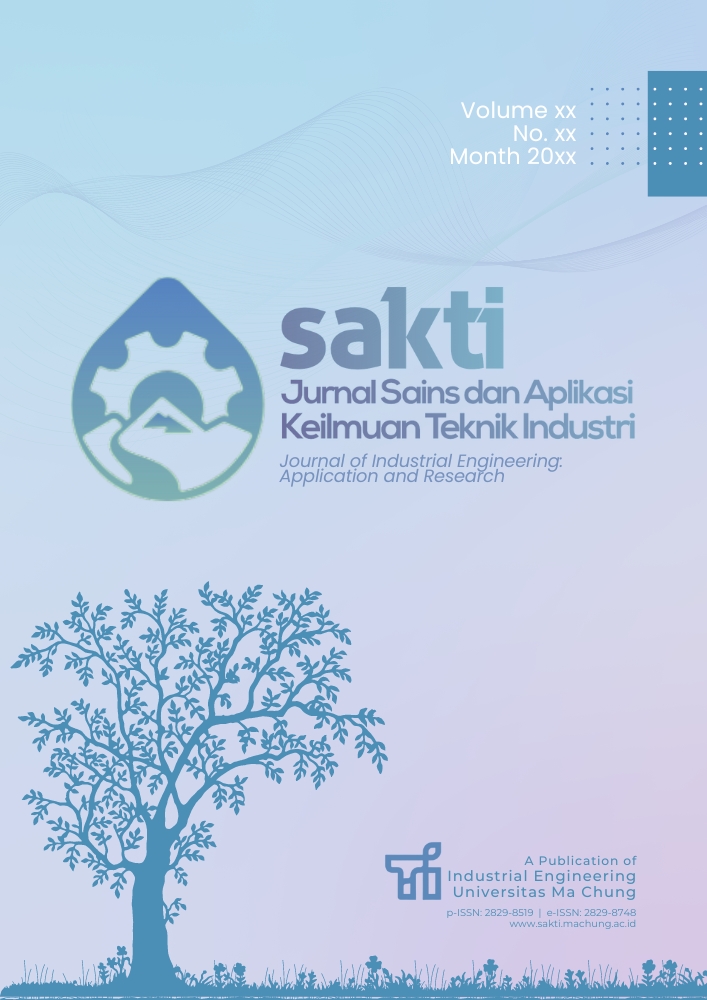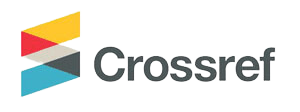| GENERAL |
| Editorial Board |
| Focus and Scope |
| AUTHOR LINK |
| Online Submission |
| Publication Policy |
| Author Guidelines |
| Download the Template |
| REVIEWER LINK |
| Become a Reviewer |
| Reviewer Guidelines |
| List of Reviewers |
| ISSN |
| p-ISSN : 2829-8519 |
| e-ISSN : 2829-8748 |
| CALL FOR PAPERS |
| Vol.04, No.01, June 2024 |
 |
| SAKTI by |
 |
| SAKTI is indexed in |
 |
 |
 |
 |
| TOOL(S) |
 |
Publication Ethics and Policy
SAKTI is committed to upholding the highest ethical standards in publishing. As a peer-reviewed journal, we publish articles on the theoretical or practical treatment of industrial engineering and engineering management. In order to maintain the integrity of our publication process, we require ethical behavior from all parties involved in publishing an article, including the author, editor, peer reviewer, and publisher.
DUTIES OF EDITORS
Decision on the Publication of Articles
At SAKTI, the Editor in Chief is responsible for making the final decision on which articles should be published in the journal. The Editor in Chief is guided by the editorial policies established by the journal's editorial board, as well as legal requirements related to copyright and plagiarism.
The Editor in Chief may consult with other editors or reviewers in making this decision, and is committed to ensuring that all published articles meet the highest standards of scholarly quality and ethical conduct.
Fair play
At SAKTI, we are committed to ensuring that all manuscripts submitted for publication are evaluated solely on their intellectual merit. We do not discriminate on the basis of author's race, gender, sexual orientation, religious belief, ethnic origin, or citizenship.
Our review process is designed to be fair, objective, and rigorous, with the aim of identifying high-quality research and scholarship in the field of industrial engineering and engineering management. We believe that a diverse and inclusive scholarly community is essential for advancing knowledge and understanding in the field, and we are committed to promoting these values in all aspects of our publication process.
Confidentiality
The Editor in Chief and any editorial staff must not disclose any information about a submitted manuscript to anyone other than the corresponding author, reviewers, potential reviewers, other editorial advisers, and the publisher.
This means that the Editor in Chief and editorial staff must not disclose any information about a submitted manuscript to anyone other than the corresponding author, reviewers, potential reviewers, other editorial advisers, and the publisher. This confidentiality extends to all aspects of the manuscript, including its contents, the names of the authors and reviewers, and any other confidential information related to the submission.
Disclosure and conflicts of interest
At SAKTI, we are committed to upholding the highest ethical standards in all aspects of our publication process, including the use of unpublished materials disclosed in submitted manuscripts. We require that all individuals involved in the handling and review of manuscripts adhere to strict confidentiality requirements, and that they do not use any unpublished materials for their own research without the express written consent of the author.
This means that anyone who has access to a submitted manuscript - including the Editor in Chief, editorial staff, and reviewers - must not use any unpublished materials for their own research without first obtaining the author's express written consent. We believe that maintaining the confidentiality and integrity of unpublished materials is essential for protecting the intellectual property of our authors and maintaining the trust of our readers.
DUTIES OF REVIEWERS
Contribution to editorial decision
At SAKTI, we place great value on the contribution of peer reviewers to the editorial decision-making process. Reviewers provide valuable feedback on the manuscript's content, methodology, and overall quality, which assists the Editor in Chief and the editorial board in making editorial decisions. Additionally, editorial communications between reviewers and authors may also help authors improve their papers. We believe that this collaborative approach to the peer review process helps to ensure that the research published in our journal is of the highest quality and contributes meaningfully to the field of industrial engineering and engineering management.
Promptness
We understand that peer review is a voluntary service and that reviewers may occasionally be unable to provide a prompt review. If a selected referee feels unqualified to review the assigned manuscript or unable to provide a timely review, we ask that they notify the editor and excuse themselves from the review process. This helps to ensure that reviews are conducted promptly and fairly and that the publication process proceeds smoothly.
Confidentiality
At SAKTI, we take confidentiality very seriously. Manuscripts received for review must be treated as confidential documents and not shown to or discussed with anyone except as authorized by the Editor in Chief. Privileged information or ideas obtained through peer review must be kept confidential and not used for personal advantage. We expect our reviewers to adhere to the highest ethical standards and to respect the confidentiality of the peer review process.
Standards of Objectivity
Reviews should be conducted objectively and with fairness and impartiality. Reviewers should avoid personal criticism of the author and should express their views clearly with supporting arguments. We encourage our reviewers to provide constructive feedback that helps authors to improve their papers and contribute to the advancement of the field.
Acknowledgement of Sources
Reviewers should identify relevant published work that has not been cited by the authors and bring it to the Editor in Chief/Editorial Board member's attention. Any statement previously reported elsewhere should be accompanied by the relevant citation. Additionally, if a reviewer has personal knowledge of any substantial similarity or overlap between the manuscript under consideration and any other published paper, they should bring it to the attention of the Editor in Chief/Editorial Board member. We expect our reviewers to adhere to the highest standards of academic integrity and to assist in ensuring that the research published in our journal is original and of the highest quality.
Disclosure and Conflicts of Interest
At SAKTI, we require reviewers to disclose any conflicts of interest resulting from competitive, collaborative, or other relationships or connections with any of the authors, companies, or institutions connected to the papers they are reviewing. If a conflict of interest is identified, the reviewer may be asked to recuse themselves from the review process. We believe that transparency is essential for maintaining the integrity of the peer review process and ensuring that the research published in our journal is of the highest quality.
DUTIES OF AUTHORS
Reporting standards
Authors have a responsibility to accurately report the methods and results of their research in a clear and transparent manner. The purpose of publishing research is to disseminate knowledge, and therefore authors should ensure that their findings are presented with sufficient detail and supporting references to allow others to replicate the work. Any underlying data should be accurately represented and available for review upon request.
Data Access and Retention
Authors may be required to provide raw data in connection with their publication, in order to facilitate peer review and subsequent analysis by interested parties. Authors should retain their data for a reasonable period of time after publication, in order to ensure its availability to others.
Originality and Plagiarism
Authors must ensure that their work is original and has not been previously published or submitted for publication elsewhere. Any use of the work or ideas of others must be appropriately cited or quoted.
Multiple and Concurrent Publications
Authors should not submit a manuscript describing essentially the same research to more than one journal or primary publication. This constitutes unethical behavior and is unacceptable. If authors wish to publish similar or related work in more than one place, they must obtain explicit permission from the journals concerned and provide appropriate cross-referencing.
Acknowledgement of Sources
Authors have a responsibility to acknowledge the work of others that has contributed to their own research. Proper citation is important to avoid plagiarism and to give credit to other researchers in the field.
Authorship of the Paper
Authorship should be limited to those who have made significant contributions to the conception, design, execution, or interpretation of the reported study. All significant contributors must be listed as co-authors, and those who participated in some substantive aspects of the research project should be acknowledged or listed as contributors.
Disclosure and Conflicts of Interest
All authors must disclose any financial or other substantive conflicts of interest that could influence the interpretation of their manuscript. All sources of financial support for the project should be revealed.
Fundamental errors in published works
If authors discover significant errors or inaccuracies in their published work, they are obligated to inform the journal editor or publisher promptly and work with the editor to retract or correct the paper.

